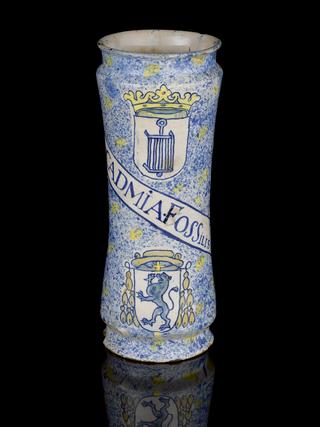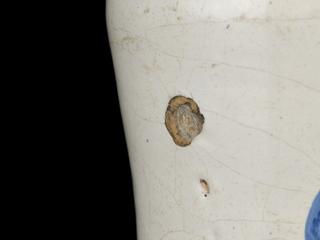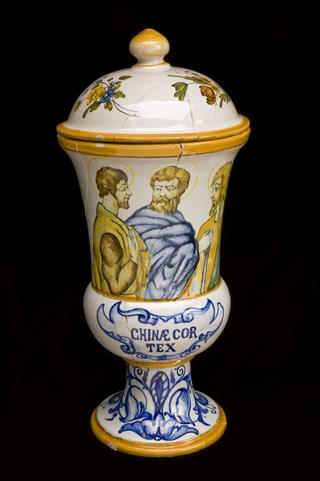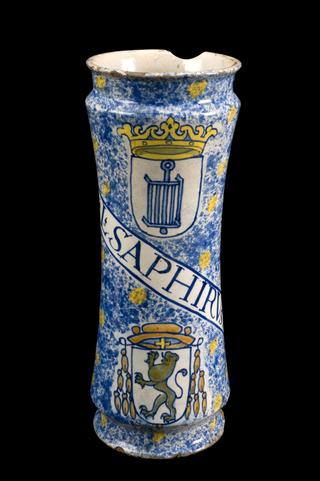


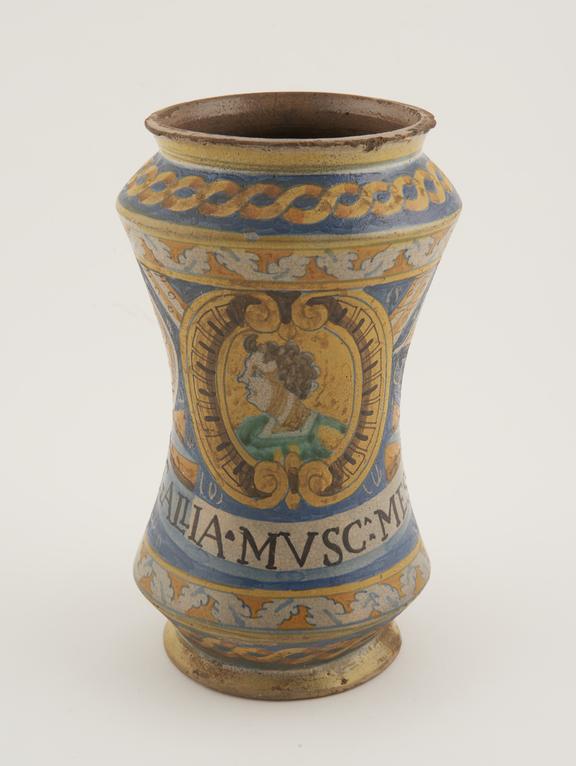
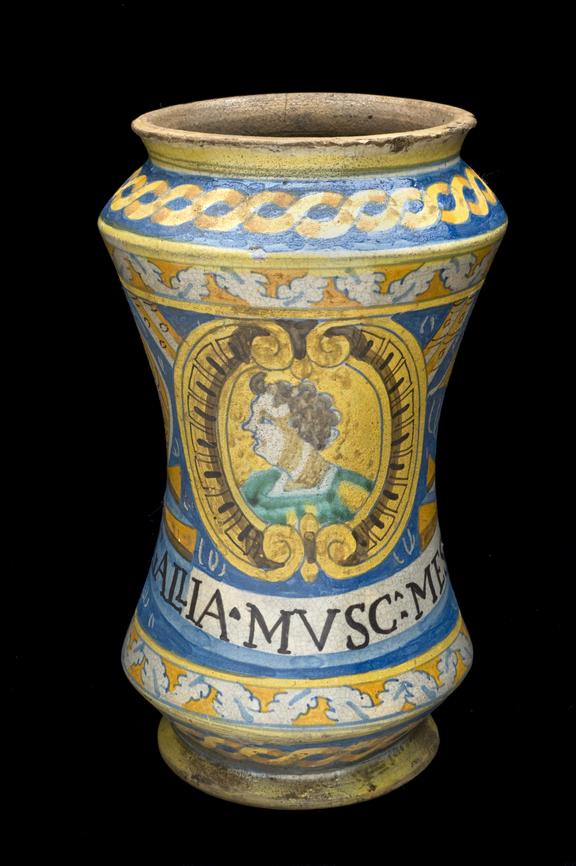
Albarello vase, polychrome maiolica with poor coperta glaze, used for Mesue's French Musked Lozenges of Aloes Wood, unsigned, Sicily, Italy, 1601-1630
The inscription on this jar translates from Latin as “Mesue’s French Musked Lozenges of Aloes Wood”. The preparation was made from aloe wood and two animal products, ambergris and musk, which are both difficult to find in large quantities. Pressed into lozenges, they were used to strengthen the brain and heart. All of the ingredients are very fragrant and so they also acted as a deodorant and breath freshener. The French part of the name derives from the preparation’s popularity in France. Mesue (777-857 CE) was the European name for Yuhanna Ibn Masawayh, a prominent Christian physician who wrote in Arabic. Ibn Masawayh worked at the Baghdad hospital and was personal physician to a number of Caliphs. ‘Meuse’ was also the pseudonym of a pharmaceutical writer.
Details
- Category:
- Medical Ceramic-ware
- Collection:
- Sir Henry Wellcome's Museum Collection
- Object Number:
- A632319
- Measurements:
-
overall: 223 mm 138 mm, .838kg
